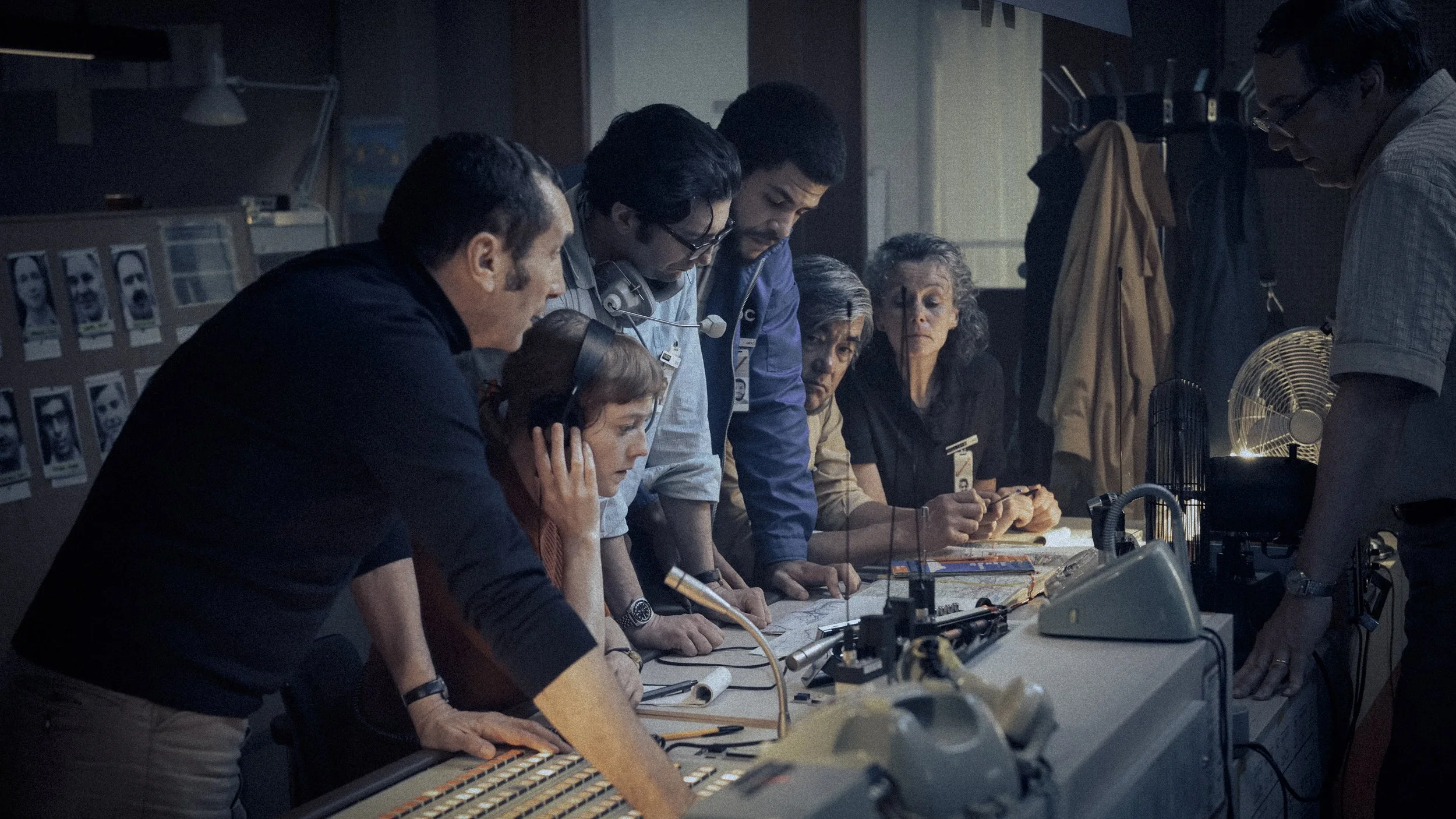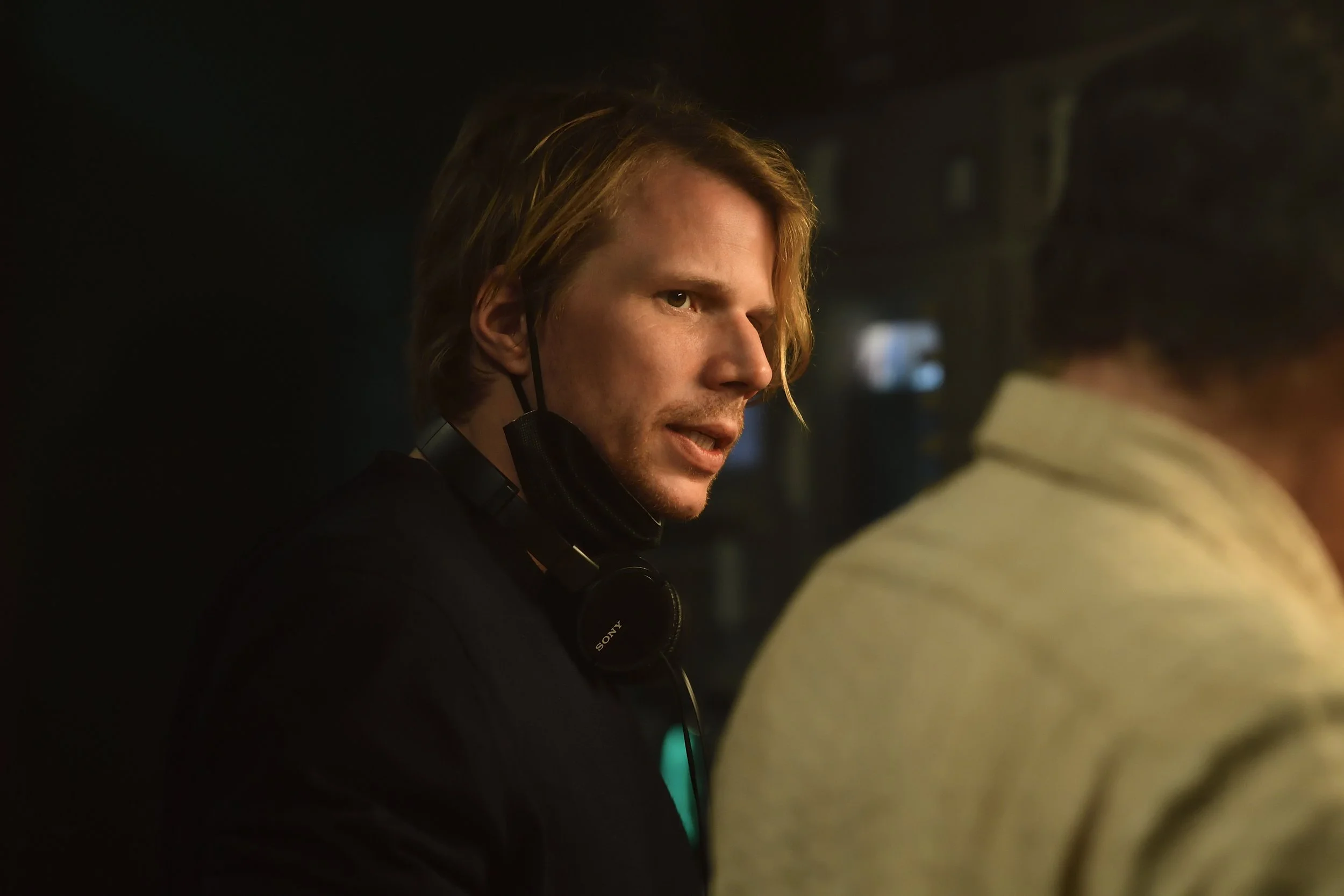Original-Cin Q&A: September 5 Director on the Sports Media Who Covered the Munich Massacre
September 5 is a new thriller starring Peter Sarsgaard and Ben Chaplin about the American sports broadcasting crew who found themselves thrust into covering the hostage crisis/massacre involving Israeli athletes at the 1972 Munich Olympics.
The film is directed by Tim Fehlbaum who was adamant about retelling this intense time in history down to the most precise detail.
Bonnie Laufer spoke with TIm Fehlberg about the film, which opens wide January 17. And be sure to read our review of September 5.
ORIGINAL-CIN: The televised Munich Olympics on ABC in 1972 was a huge deal for many reasons. So here we are 50-plus years later, and I was wondering why it was so imperative for you to tell the story from the perspective of the ABC Sports crew now?
TIM FEHLBERG: I think, especially for today's world, our film is very relevant, because we're living in a world where the media landscape is constantly evolving.
We're having this conversation without us being in the same room, right? Everything is digital. Everything can be streamed at any time, and I think especially at that time, it is interesting to take a step back and see how 50 years ago, television worked.
Images found their way from where they've been taken to a TV set at home. Yeah, absolutely. And what's so interesting, it really made me put into perspective, going, “My God, are we ever lucky in the era that we live in.”
Now it's so easy. People, you know, can do anything with their phones or what have you. So the difficulties that they had back then with the one satellite feed is just crazy to think about it.
O-C: How much of a challenge was it for you to center practically the whole film in the control room?
FEHLBERG: That was what initially challenged me, because not only was I focused on everything that was happening in that control room, but I had to show what was happening outside of that control through the monitors.
What was so ironic was that they were all so close to the tragedy, but they never left the studio. I think what makes it more interesting is what you don’t see rather than what you could see.
O-C: Your research and attention to detail is meticulous. Every nuance of the control room and working telephones from the ‘70s, for example, were created for the film. How difficult was it for you to put that all together?
FEHLBERG: Yes, it is interesting to see how hard it was back then, the technology and how long everything took. But also what I thought was interesting is that even though the technology is very different today, I think the bigger questions or ethical questions are still the same.
It was incredibly important to us to be as precise as possible.
We discussed how important it was the way we consume news or the way we report on things today, which is mainly influenced by technology.
September 5 director TIm Fehlberg
Ultimately, this film is also a movie about the technology that was available back then, relying on one satellite, and telephones. So we wanted to be as accurate as possible. We did a lot of research and we also found the original blueprints of the studio.
Julian Wagner, our production designer, rebuilt our sets by trying to stay as truthful as possible to these original construction plans. Also, for me, it was important that a lot of these devices that the cast interacted with, like the walkie talkies and telephones, would actually work so that actually someone would be on the line.
Or when John Magaro who plays the producer Geoffrey Mason gives a direction to the crew in the control room, pushing a button actually would have an influence, something would change on the monitor. I think it should feel real, and you should get that feeling as if you would be there in that room.
O-C: That's exactly how I felt, it was very intense. Speaking of John Magaro, you had access to the real life producer, Geoffrey Mason. He was truly in the hot seat throughout this entire broadcast.
What also stands out was the moral dilemma. How much should he show the kidnapped athletes, what should they tell the public about what was really going on? What was his major recollection that you took away from what he and his colleagues went through?
FEHLBERG: Geoffrey and the team were just busy with covering the situation as it was happening in front of their eyes, basically. They were just a group of Sports TV people that suddenly had to make that switch to hard news.
It was imperative that we tell everything from their perspective, so that the audience didn’t know anymore than what the people in that room knew.
I think that's also the interesting thing about the specific case of Munich ’72, that these people weren't trained or experienced to report on a crisis situation like this, so you could confront them with hundreds of questions.
And in a way, they had an innocent view on that. They were doing the best that they could do under the worst circumstances imaginable.




